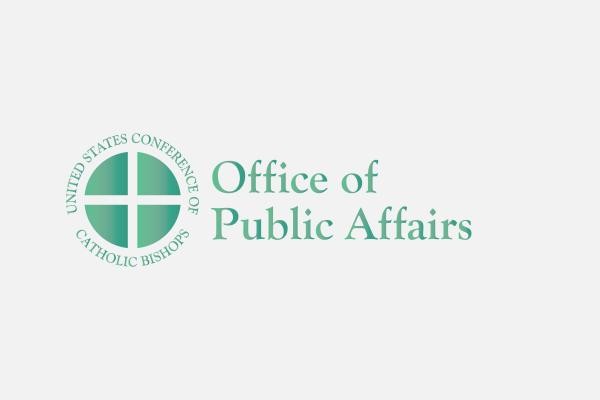Recent Consultation Between Catholic Bishops, National Council of Synagogues Considers Worship Texts
WASHINGTON-Catholic and Jewish leaders recently addressed the ways in which worship texts of one group treat religious beliefs of others. The discussion took place during the annual fall meeting of the United States Conference of Catholic Bishops (USCCB) and the National Council of Synagogues, Novem
WASHINGTON-Catholic and Jewish leaders recently addressed the ways in which worship texts of one group treat religious beliefs of others.
The discussion took place during the annual fall meeting of the United States Conference of Catholic Bishops (USCCB) and the National Council of Synagogues, November 19, at Saint Mary's Seminary, Baltimore.
Ruth Langer, Ph.D., of Boston College, gave a presentation on how liturgy tells a believing community who it is, often by offering a negative definition of who it is not. She gave examples from a Jewish Morning Prayer service, in particular the so-called malediction of the heretics and the Aleinu prayer which tended to disappear in the 20th century. She indicated that the increasing discomfort with the prayers and their interpretation led to Jewish self-censorship and the Catholic Church's own censorship of these texts in the mid-16th century.
Given the interplay between prayer and religious identity, Jewish perceptions of the outside world changed with the censorship or erasure of these prayers, Langer said. She noted how various contemporary Jewish religious movements handle prayer texts, such as the morning blessings, and said there is a tendency today for Jews to promote prayers that are more universalistic in orientation and that treat otherfaith groups more abstractly.
Father Dennis McManus, Ph.D., consultant to the Bishops' Committee on Ecumenical and Interreligious Affairs and Visitng Professor at Georgetown University, addressed the problem from the Catholic standpoint. He reviewed the July 7, 2007 Motu Proprio of Pope Benedict XVI that widened the use of the Latin Missal of 1962, and gave close attention to a reading of the Good Friday Prayer for the conversion of Jews found in that same Missal. The Motu Proprio was issued in part to meet the needs of Catholics attached to the rites of 1962, but also to bridge the gap between the Catholic Church and the followers of Archbishop Marcel Lefebvre, who led some Catholics into schism in 1988, Father McManus said.
Father McManus compared the teaching style of Pope Benedict XVI with that of his predecessor, Pope John Paul II, particularly in regard to the organic development of the liturgy. He then commented upon the July 7, 2007 Motu Proprio of Pope Benedict XVI that widened permission for the use of the Latin Missal of 1962, which includes a Good Friday Prayerfor the conversion of Jews. Father McManus reported that at the close of summer, Cardinal Bertone had suggested that active consideration was being given to the idea of substituting the prayer for the conversion ofthe Jews in the 1962 Missal with the prayer for the Jews found in the 1970 Missal. While other possibilities had also been considered by the Holy See, Cardinal Bertone's suggestion seemed so far to have been foundmost practical.
At the meeting Rabbi Joel Zaiman, Co-Chair of the Consultation, paid tribute to recently retired Cardinal William Keeler and presented him with a Torah Yad (pointer) from Jerusalem. Rabbi Meyers then offered reflections of Cardinal Keeler's years of service to ecumenical and interreligious dialogue.
Participants also reported on new educational initiatives in the Catholic parochial schools in Pittsburgh, Boston, and Baltimore.
The Fundamental Agreement between the State of Israel and the Vatican was also discussed. Rabbi Gil Rosenthal indicated that a November 7, 2007 meeting in Rome showed progress toward development of a process by which land disputes between the Church and the government could be settled. According to one current proposal, the
Church would be able to bring disputes to a court of arbitration rather than to officials of the Israeli ministries. The government would support Church institutions working in the fields of health, welfare, and education, and exempt Church agencies from federal and municipal taxes, Rabbi Rosenthal said.
The matter of the anti-Semitic preaching and political commentary of Father Tadeusz Rydzyk of Radio Maryja in Poland also was discussed.
Those attending on the Catholic side included Cardinal William Keeler; Bishop Basil Losten of the Eparch of Stamford for Ukrainians; Bishop Dennis Madden, Auxiliary Bishop of Baltimore; Christian Brother David Carroll; Father McManus; Jesuit Father Drew Christiansen; Father Lawrence Frizzell and Atonement Father James Loughran.
Among the Jewish participants were Rabbi Alvin Berkun, Rabbi Rosenthal, Rabbi Zaiman, Rabbi Nathan Abramowitz, Rabbi Jeff Wohlberg, Professor Langer, Rabbi Joel Meyers, Rabbi Lewis Eron, Rabbi Jonathan Waxman, MarkPelavin, Judith Hertz, and Debra Eichenbaum. Eugene Korn, Ph.D., also joined the meeting as a special guest of Cardinal Keeler.
The next consultation is scheduled for May 12, in New York.

